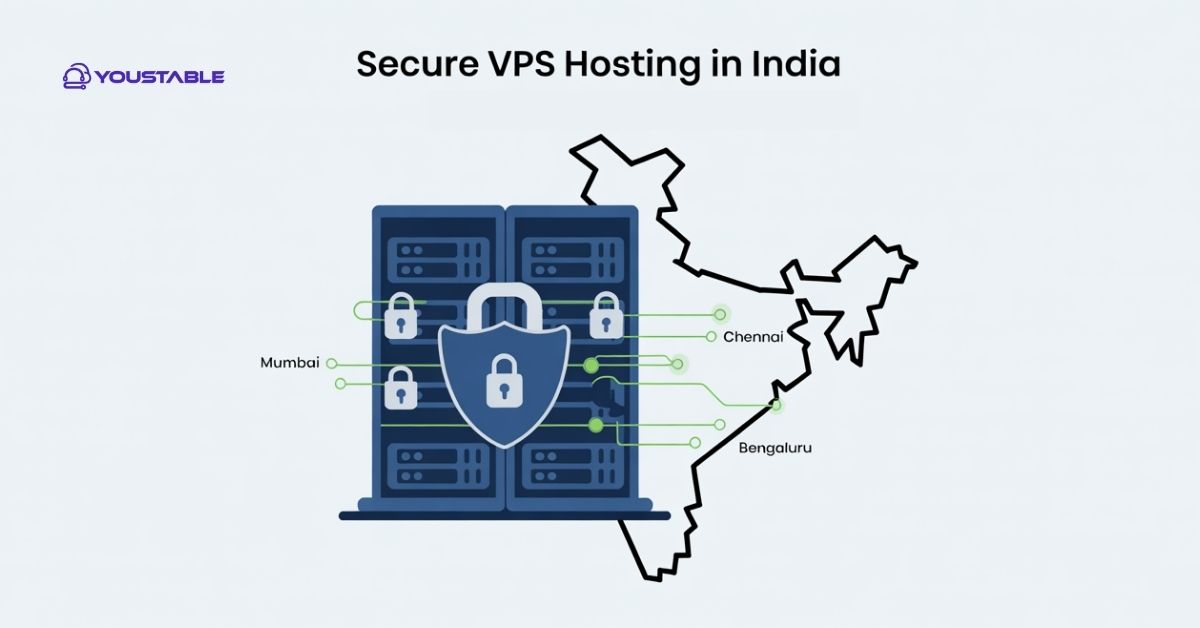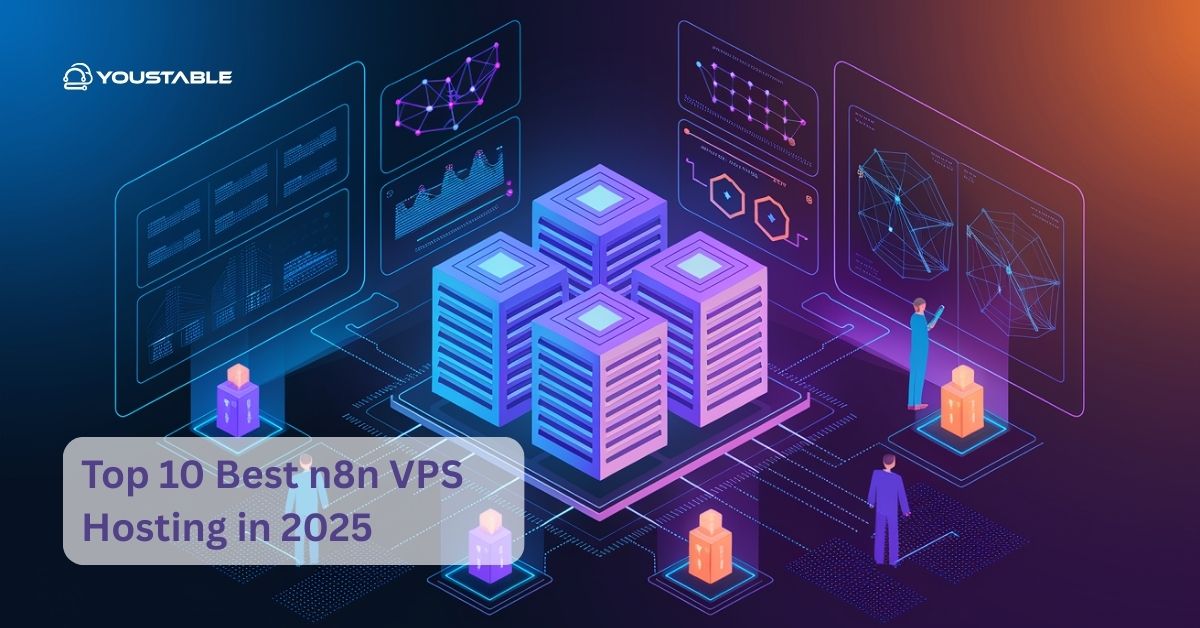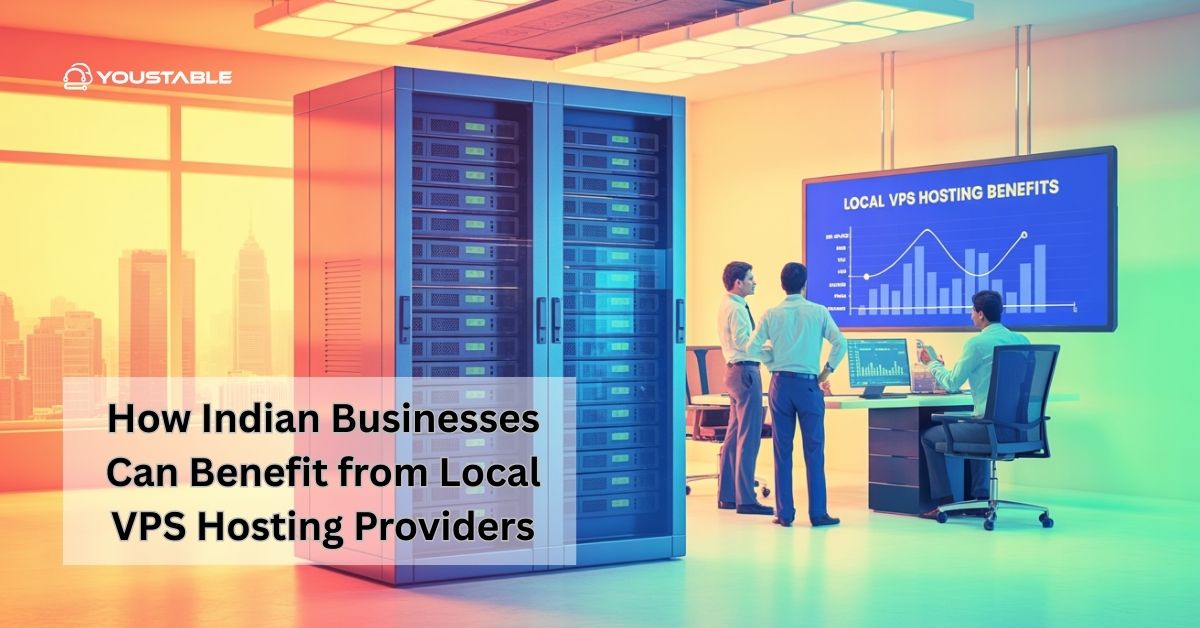In India’s rapidly growing digital ecosystem, website security is a mission-critical requirement for businesses, developers, and enterprises. With rising cyber threats, from DDoS attacks to data breaches, securing web applications requires infrastructure that offers both control and isolation.
Virtual Private Server (VPS) hosting provides a balanced approach between affordability and security by combining dedicated resources with virtualization-based isolation. This document provides a technical assessment of how VPS hosting improves website security in India, supported by configuration examples and security implementation scenarios.
Throughout this article, we will also highlight strategies for secure VPS deployment and factors to consider when choosing a provider in India.
How VPS Hosting Improves Website Security

VPS hosting enhances security through virtualization-based isolation, dedicated resources, and full administrative control.
Each VPS runs in its virtual machine, created by a hypervisor such as KVM, VMware ESXi, or Xen. This ensures complete separation at the kernel level. A breach in one VPS does not affect others on the same server. For example, if VPS-A is hacked due to an outdated plugin, VPS-B remains unaffected because the hypervisor blocks cross-VM access.
Dedicated CPU, RAM, and storage mean there is no resource sharing with other tenants. This prevents performance drops or downtime caused by denial-of-service attacks on neighboring sites — a common problem in shared hosting.
Root or administrator access allows you to set up custom security policies. You can install firewalls, restrict access to certain IP addresses, enforce TLS 1.3, and apply patches immediately when vulnerabilities are found. Fast patching is essential to protect against zero-day attacks.
VPS hosting also supports advanced network security. You can configure iptables, nftables, or Windows Firewall, set up VPN-based admin access, and block high-risk IP ranges. Businesses in India can restrict management access to local IP ranges for extra safety.
For data protection, VPS servers can use encryption at rest and in transit. Tools like LUKS or BitLocker secure stored data, while SSH and HTTPS (TLS 1.3) protect it during transfer. This layered approach reduces the attack surface compared to shared hosting.
Core VPS Hosting Security Features
VPS hosting offers built-in and configurable security features designed to protect websites from cyber threats. These capabilities combine virtualization, network filtering, and data protection measures, allowing administrators to maintain strict control over server security.
Dedicated resources and process isolation eliminate the “noisy neighbor” problem. Security processes are not interrupted by other workloads, which is a common vulnerability in shared hosting.
Administrative control, through root or administrator access, allows for OS-level hardening, deployment of intrusion detection systems (IDS), and advanced firewall configurations.
Advanced firewall and network security features support custom firewall rules, DDoS protection, and intrusion prevention systems (IPS), giving administrators the flexibility to tailor security to their application needs.
Patch and update control ensures immediate response capability for newly disclosed vulnerabilities. Administrators can apply OS and software updates as soon as patches are released, reducing the window of exposure.
Data security and encryption protect multiple levels. Full disk encryption, database encryption, and encrypted backups ensure that sensitive information remains safe even if the physical hardware is compromised.
India-Specific Security Considerations
For businesses hosting websites in India, VPS security needs to address local regulations, cyber threats, and compliance requirements. Choosing the right VPS setup ensures both legal adherence and protection against common attacks.
Data Localization
Ensures that your data remains within the country. Hosting a VPS in India helps comply with RBI guidelines and government regulations regarding sensitive data. This is particularly important for industries like banking, e-commerce, and healthcare, where legal compliance is mandatory.
Cyberattack Trends in India
Highlight frequent phishing scams, botnet-driven DDoS attacks, and ransomware campaigns. SMEs and startups are often the hardest hit due to weaker defenses. VPS hosting provides advanced firewall rules, IP blocking, and traffic filtering to mitigate these risks effectively.
Compliance Frameworks
It is easier to achieve with VPS hosting. Servers can be configured to meet Indian IT Act standards, PCI-DSS for secure payments, and HIPAA for healthcare data protection. This level of customization is difficult with shared hosting, but crucial for regulated industries.
Best Practices for VPS Hosting Security in India
To maintain a secure VPS environment in India, implementing practical security measures is essential. These best practices reduce the risk of cyberattacks and ensure compliance with local regulations.
- Access Control involves disabling root login over SSH, enforcing key-based authentication, and avoiding default ports. Limiting access reduces the chance of unauthorized logins.
- Network Hardening requires setting up host-based firewalls, enabling VPN-only access for server administration, and disabling unused network services. This approach blocks unauthorized traffic and minimizes potential attack surfaces.
- Intrusion Detection and Prevention can be implemented using tools like Snort, OSSEC, or Wazuh. These systems detect and prevent suspicious activities in real time.
- Malware Scanning should be scheduled regularly using ClamAV or commercial anti-malware software. Automated scans detect malicious files before they can compromise the server.
- Log Monitoring involves using centralized log analysis platforms such as ELK Stack or Graylog. Monitoring logs allows administrators to track anomalies and respond promptly to security incidents.
- Vulnerability Assessments should be performed regularly with tools like OpenVAS or Nessus. These scans help identify potential weaknesses so they can be patched before being exploited.
Provider Selection Checklist
Choosing the right VPS provider is critical for website security and performance in India. Consider the following factors when evaluating providers:
- Data Center Location – Select providers with data centers in Mumbai, Chennai, or Bengaluru. Hosting close to your users ensures low latency and faster response times.
- Security Certifications – Look for ISO 27001, SOC 2, and PCI-DSS certifications. These demonstrate adherence to international security standards and best practices.
- DDoS Mitigation – Ensure the provider offers both network-level and application-level DDoS protection to defend against traffic-based attacks.
- SLA and Incident Response – Verify that the provider guarantees at least 99.9% uptime and has a clear incident response policy for security breaches or outages.
Conclusion
VPS hosting significantly improves website security in India by providing virtualization isolation, dedicated resources, full administrative control, and customizable security measures. Developers, enterprises, and regulated organizations benefit from the control and flexibility necessary to implement proactive security strategies tailored to the Indian cybersecurity landscape. By following best practices, choosing a reliable provider, and leveraging local VPS data centers, businesses can ensure both compliance and robust protection against evolving cyber threats.


